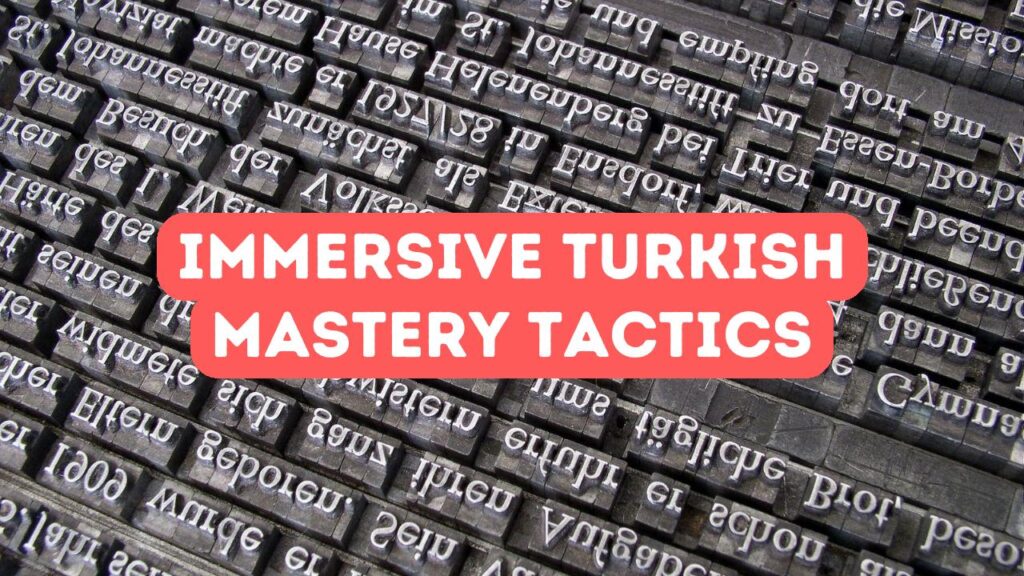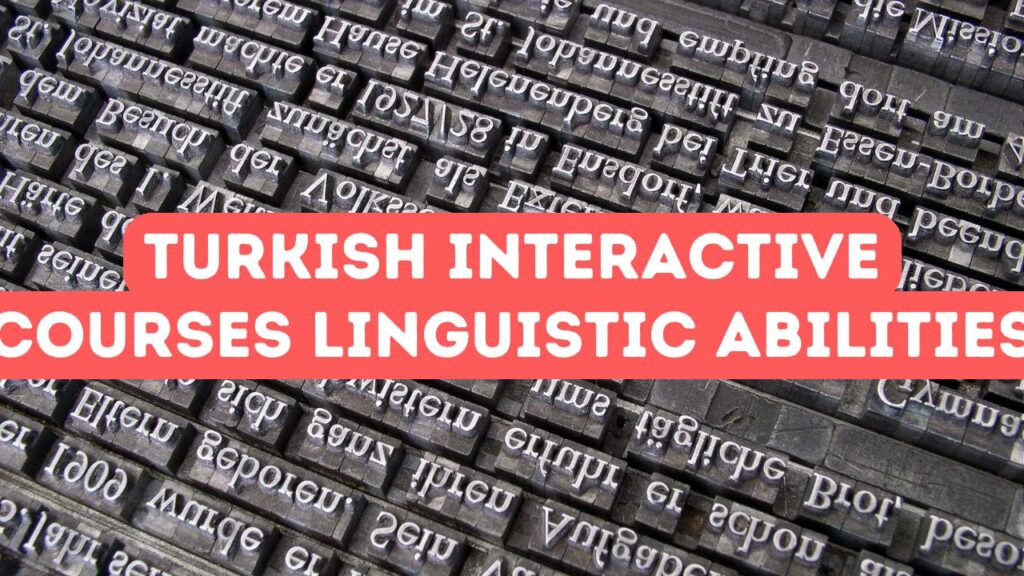Maximizing Your Test Score: Expert Techniques
A critical strategy for maximizing your test score in Turkish language exams is to thoroughly understand the exam’s structure and question types. Expert test-takers know the importance of familiarizing themselves with the format of the exam, whether it’s multiple-choice questions, fill-in-the-blank, essay writing, or oral proficiency components. By aligning your study focus with these formats, you can allocate your preparation time more efficiently. Practicing past exam papers is paramount as it equips you with the foresight to anticipate the kinds of questions that may appear and hones your ability to manage time effectively under examination conditions. This method of targeted practice not only solidifies your grasp of Turkish grammar and vocabulary but also builds your test-taking stamina and confidence, key factors that contribute towards achieving a top score.
Delving deeper into linguistic nuances, a robust vocabulary and a strong grasp of Turkish grammar are indispensable for a high test score. Beyond memorizing word lists and grammar rules, successful examinees engage with the language in a meaningful context. This could involve daily readings of Turkish literature, newspapers, and engaging with media to understand idiomatic expressions and cultural references. Learners who can draw connections between their study material and real-life examples demonstrate a richer comprehension, which is often reflected in the exam’s written and oral sections. To that end, creating a study regimen that includes speaking exercises with native speakers can dramatically improve your fluency and intuition for the language, giving you the edge needed to excel in nuanced grammatical constructions and complex sentence formations that are typical in advanced levels of Turkish proficiency exams.
Adopting strategic test-taking skills plays a significant role in maximizing your exam score. One such technique is to begin with sections that carry the most weight or those you are most confident in, as this builds momentum and ensures you secure essential marks early on. During the exam, it’s vital to remain calm and manage your pace to have time for review. For essay portions, structuring your answer with clear, logical progressions and authentic examples can demonstrate a sophisticated command of the language. Similarly, in oral exams, clarity of speech, proper pronunciation, and the use of advanced vocabulary within a fluid conversation can impress examiners, showcasing not just your language proficiency but also your cultural competence. Lastly, regular self-assessment during your preparation phase identifies weaknesses and monitoring progress allows for corrective measures—a decisive step for excelling in Turkish language exams.
Mastering Grammar and Vocabulary: A Focused Approach
Mastering the intricacies of Turkish grammar and vocabulary can be the most daunting aspect of the language for many students, yet they are the pillars upon which language proficiency is built. A focused approach to this challenge begins with grasping the agglutinative nature of Turkish, where words are often formed by stringing various suffixes onto a root. This requires diligent study and repetition of the rules governing vowel harmony and affixation. Learners should prioritize daily vocabulary acquisition through thematic word lists and contextual learning, ensuring not only memorization but also the ability to use new words correctly in sentences. A systematic study routine that integrates the use of flashcards, digital language learning applications, and regular self-assessment can lead to an expansive lexicon and a solid understanding of Turkish sentence structure, which are critical for exam success.
Building upon these foundations, students must venture beyond mere memorization to the application of grammar and vocabulary in practice. Regular engagement with authentic Turkish reading materials, such as newspapers, novels, and essays, can dramatically improve language retention and functional knowledge. This immersion helps to internalize sentence patterns and provides valuable exposure to idiomatic expressions and colloquial language, which are often tested on exams. Additionally, well-structured language exercises that focus on conjugating verbs, constructing complex sentences, and applying grammatical cases in context are indispensable. They not only reinforce learning but also enhance a student’s agility in maneuvering through tricky exam questions. Practice should be varied and frequent, with special attention to areas of personal difficulty, as tailored practice leads to greater confidence in exam settings.
To consolidate mastery in grammar and vocabulary, consistent revision and practice tests should take precedence in the final stages of exam preparation. Simulated exams crafted to mimic the structure and difficulty of actual Turkish language exams can provide invaluable insights into a student’s readiness and pinpoint areas needing further refinement. Taking time to dissect errors made on practice tests can reveal common pitfalls and ensure that similar mistakes are not replicated during the actual examination. It is also beneficial to engage in active discussions with native speakers or participate in language exchange programs, as this can greatly enhance conversational skills and offer practical application of linguistic nuances. By fostering a multi-faceted approach that combines theoretical study with applied linguistics, learners can approach their Turkish language exams with a balanced skill set, poised for success.
Navigating Turkish Exam Pitfalls: Proven Success Tips
Navigating the labyrinth of Turkish language exams requires a keen awareness of common pitfalls and the adoption of proven strategies to avoid them. A significant stumbling block for many students is the intricate interplay of vowel harmony and agglutination in Turkish grammar. To surmount this, successful examinees prioritize consistent practice with a variety of authentic texts—gradually progressing from straightforward daily conversational phrases to the more complex literary and technical discourse. This immersive approach not only solidifies their grasp of the theoretical aspects of Turkish grammar but also equips them with the practical finesse to manipulate language constructs deftly, turning potential pitfalls into stepping stones for higher achievement in language proficiency evaluations.
Another critical pitfall to navigate is the pressure of timed exams, which can unsettle even the most prepared students, particularly when faced with the comprehensive reading comprehension and essay writing sections. Time management is crucial; candidates should practice pacing themselves by taking timed practice tests, enabling them to allocate appropriate amounts of time to each section. Focusing on swift identification of key ideas in reading passages and planning essay outlines before diving into writing can conserve time and enhance clarity. Furthermore, strategies such as adopting mnemonic devices for vocabulary retention and utilizing mental maps to organize thoughts can be vital in swiftly retrieving information and constructing coherent arguments under the constraint of the ticking clock.
Finally, familiarity with the exam format is an indispensable asset for students. Leading up to the exam, aspirants should investigate past papers and the conventional structure of the language tests. This strategy renders the guidelines, types of questions, and expected responses second nature to learners, allowing for a more strategic approach during the actual exam. On the day, it’s equally critical to read questions judiciously to avoid misinterpreting prompts, especially where command words like ‘discuss,’ ‘compare,’ or ‘illustrate’ dictate the style of response. By calibrating their study regimen to mirror the test’s format and rigorously dissecting the semantics of questions, students position themselves to tackle the exam with a tailored, confident mindset that transcends rote memorization and reflects a genuine mastery of Turkish.







